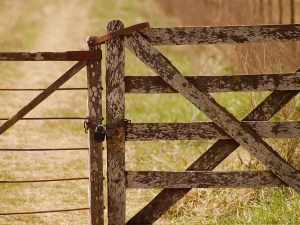Farmer confidence dips slightly, but positivity still dominates
Farmer confidence has taken a slight dip according to the final Rabobank rural confidence survey for the year.
 The latest results from the Rabobank confidence survey show that farmer confidence sits at a record minus 72%.
The latest results from the Rabobank confidence survey show that farmer confidence sits at a record minus 72%.
OPINION: One of the tasks of whatever new government emerges in the coming days and weeks will be to look and see what can be done to restore farmer confidence.
The latest results from the Rabobank confidence survey show that farmer confidence sits at a record minus 72%. It goes on to show that three quarters of sheep and beef farmers expect the performance of their own farming businesses to deteriorate in the coming year.
This isn’t surprising, given the news that has been widely reported for some months now with a sluggish Chinese market, global inflation, and the very volatile geopolitical situation.
Uncertainty started with the arrival of Covid-19 and has remained something of a constant. Yes, we have got two new FTAs over the line and there is improved access for many of our primary products, but for the last four years, volatility and uncertainty have prevailed.
While the survey results rightly says the main cause of the confidence drop is lower commodity prices, there are other factors at play, such as rising input costs – fuel, fertiliser and the like – and the scarcity and cost of skilled labour.
Interestingly, government policies have slipped out of the top two reasons for the drop in farmer confidence. Maybe there is a realisation that whoever governs the country, the direction of travel won’t change, although the speed may slow.
In the last few months of the election campaign the issues affecting farmers and rural communities have largely been ignored by politicians and the mainstream media.
The campaign has been depressing and one can only hope that when the politicians come back to Wellington they will start to focus on real issues – one of these being restoring farmer and rural confidence.
The World Wide Sires National All Day Breeds Best Youth Camp Best All Rounder plaudit has become family affair, with 2026 Paramount Cup winner Holly Williams following in her sister Zara's footsteps.
DairyNZ is giving New Zealand farmers a unique opportunity to gain hands-on governance and leadership experience within the dairy sector.
Herd improvement company LIC has posted a 5.2% lift in half-year revenue, thanks to increasing demand for genetics.
According to the latest Fresh Produce Trend Report from United Fresh, 2026 will be a year where fruit and vegetables are shaped by cost pressures, rapid digital adoption, and a renewed focus on wellbeing at home.
The Roar is a highlight of the game hunting calendar in New Zealand, with thousands of hunters set to head for the hills to hunt male stags during March and April.
OPINION: The past few weeks have been tough on farms across the North Island: floods and storms have caused damage and disruption to families and businesses.